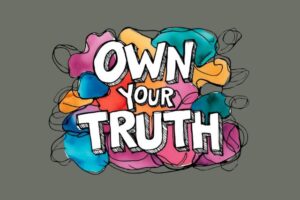Building a Thriving Society to Address Human Rights and Equities
Human rights are the cornerstone of any just society. They are the fundamental rights that should be available to every person, ensuring that each individual is treated with fairness, respect, and dignity. However, simply recognizing human rights is not enough to create a truly harmonious society. We must be proactive in addressing the deeper challenges that prevent the full realization of these rights. Building a thriving society involves not only recognizing human rights but ensuring that they are accessible to all. It requires taking deliberate actions to address inequities, empowering marginalized communities, and confronting societal biases that stand in the way of equality.
Building a Thriving Society: Key Elements of Human Rights and Equity
Building a thriving society requires embedding human rights and equity into every aspect of life. This involves ensuring fair access to resources, inclusive decision-making, dismantling harmful stereotypes, and empowering communities to drive change. The following key elements are essential in creating a society where everyone’s rights are respected and equality is prioritized.
1. The Importance of Resource Distribution
At the heart of building a thriving society is addressing the unequal distribution of resources. In many parts of the world, essential resources such as education, healthcare, and economic opportunities are not equally available to all people. Too often, wealth and access to these critical services are concentrated in the hands of a few, leaving the majority struggling to meet their basic needs. This imbalance in resource distribution is one of the biggest hurdles we face in building a thriving society where human rights are respected and upheld.
When we talk about building a thriving society, we must prioritize the fair distribution of resources. This goes beyond just providing the necessities of life. It means ensuring that every person, regardless of their background, has access to quality education, affordable healthcare, and opportunities to build a better future. For example, it means designing systems that eliminate barriers for people living in poverty, offering equal opportunities for people from different socioeconomic backgrounds, and ensuring that no one is left behind.
Imagine a society where every child has access to a good education, where every person can receive the healthcare they need to live a healthy life, and where no one is discriminated against because of their income, race, or social standing. This is the vision of a thriving society. By promoting equitable resource distribution, we are not only lifting individuals out of poverty but also strengthening the very foundation of society itself. Everyone benefits when resources are distributed fairly.
2. Inclusion in Decision-Making Processes
Building a thriving society also means ensuring that all people, especially those who have been marginalized, are included in decision-making processes. Throughout history, groups such as women, ethnic minorities, the LGBTQ+ community, and others have often been excluded from positions of power. This exclusion has limited the scope of progress and hindered the creation of a truly just and equitable society.
To create a thriving society, it is crucial that we actively work to include the voices of marginalized communities in decision-making. This is not just about making space for these voices; it’s about giving them real power and influence in shaping the policies that affect their lives. Inclusion means ensuring that everyone, regardless of their gender, race, sexual orientation, or background, has the opportunity to participate in politics, leadership roles, and all levels of decision-making.
When we make a conscious effort to include diverse voices in shaping our future, we create a society that truly reflects the needs and aspirations of everyone. These inclusive decision-making processes result in policies that are more thoughtful, comprehensive, and effective. By amplifying the voices of marginalized groups, we ensure that the solutions we develop address the concerns of all people. Inclusion is not just a moral imperative; it’s a practical one. When everyone has a seat at the table, the solutions we create are stronger, more sustainable, and more equitable.
3. Breaking Stereotypes for a Progressive Society
Stereotypes are like invisible walls that divide us from one another. They are preconceived notions about people based on their appearance, their background, or their identity. These stereotypes often lead to prejudice and discrimination, preventing us from fully embracing the diversity that makes our society vibrant and strong.
To build a thriving society, we must actively work to break down these stereotypes. This requires more than just challenging individual prejudices; it means changing the societal structures and systems that perpetuate these stereotypes. We need to create educational programs and awareness campaigns that promote empathy, respect, and understanding for all people, no matter their race, gender, religion, or background.
Education is key here. By teaching children and adults alike to value diversity and question stereotypes, we can foster a culture of respect and inclusion. In addition, promoting positive portrayals of marginalized groups in the media, literature, and arts helps combat harmful stereotypes and highlights the richness of human experience.
By actively working to break down stereotypes, we not only create a more inclusive society but also pave the way for a more harmonious one. People are more likely to respect one another and work together when they understand each other’s experiences and value each other’s differences.
4. Equipping Societies for Change
Building a thriving society requires more than just good intentions—it requires equipping people with the tools they need to make meaningful change. This means ensuring that everyone has access to education, knowledge of their human rights, and opportunities to actively engage in the betterment of their communities.
Education plays a critical role in building a thriving society. When individuals are educated about their rights and responsibilities, they are better equipped to advocate for themselves and others. Human rights literacy empowers people to speak out against injustice and hold governments and institutions accountable. It also fosters a sense of shared responsibility—when people understand the importance of human rights, they are more likely to work toward creating a society where those rights are universally respected.
But education is not enough on its own. Building a thriving society also requires fostering a culture of dialogue and collaboration. This means creating spaces where people can come together to discuss societal challenges and work together to find solutions. By promoting active citizenship and encouraging participation in civil society organizations, we ensure that individuals are not passive observers but active agents of change.
The more individuals and communities are equipped with the knowledge, skills, and platforms they need, the more powerful they become in driving social change. When everyone is empowered to act, we are better able to create a society that is truly inclusive and equitable.
5. Fostering Social Justice and Accountability in Building a Thriving Society
Building a thriving society is about more than just providing opportunities—it’s about ensuring that justice is served for everyone, no matter their background or circumstances. Social justice stands as the cornerstone of a society where every individual’s dignity, rights, and freedoms are protected and respected. To build a thriving society, we must not only acknowledge the rights of every person but actively fight against the injustices that undermine equality and fairness.
When we focus on building a thriving society, accountability is key. It’s not enough to simply have good policies in place. We must hold all individuals, leaders, and institutions accountable for their actions, ensuring that they act transparently, ethically, and fairly. Accountability strengthens trust between people and the systems meant to serve them. It guarantees that laws and regulations are not only in place but actively enforced in a way that ensures fairness and equality for everyone. Leaders must be responsible for their decisions, and institutions should be transparent in their dealings.
In a thriving society, justice must be a priority. This means dismantling systemic inequalities that prevent certain groups from accessing the same opportunities as others. Whether it’s addressing racial or gender discrimination, wealth disparity, or political marginalization, we must ensure that all individuals have equal chances to thrive. It also means calling out and taking action against those who benefit from unjust systems, holding them accountable for perpetuating inequality. When these efforts are made, we create a culture of justice where human rights are not just spoken about but lived every day.
Building a thriving society requires us to keep working towards social justice and accountability. By ensuring fairness and equality in all aspects of life—from education and healthcare to employment and beyond—we can create a society where everyone, regardless of their background or personal struggles, has the right to thrive. The journey to building a thriving society starts with a deep commitment to fairness, transparency, and respect for the rights of every person. When we prioritize these values, we lay a solid foundation for a just, inclusive society, where human rights are always at the heart of everything we do.
















